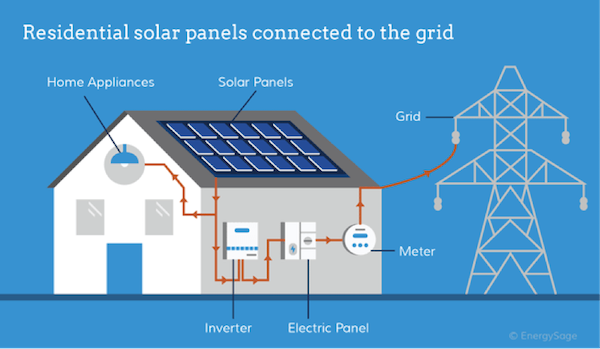Solar Panels for Residential
Get the information to know about the solar panels for residential, Solar panels are the key component for any residentials, commercial, or utility-scale solar or distributed solar options (which are used in commercial and residential installations) is that the electricity which is generated from a utility project is not consumed at the host site. As Photovoltaic installations are the most common type of utility-scale solar solutions.
Key Components used in solar power systems
Solar Panels, Solar Power Inverters and Mounting Racks.


Key Components used in solar power systems
Solar Panels
The main aspect of any system is, of course, the solar panels themselves. Solar panels generate direct current energy as they are exposed to the electrons in sunlight. The amount of electricity solar panels produce from sunlight is referred to as solar efficiency.
While solar panel efficiency is generally around 15% - 20%, solar cell efficiency can reach up to over 40% in some controlled cases. As solar panels don’t release any greenhouse gas or carbon dioxide emissions into the atmosphere, they are one of the cleanest options for energy for your home.
Mounting Racks
The most common place for a residential solar power system setup is on a home’s roof, as it typically has the most direct exposure to sunlight consistently throughout each day. In order to secure the panels in place, a quality mounting rack is key. Mounting racks help to secure the panels in place during all kinds of weather and can be adjusted for height and angle to provide optimum efficiency throughout the year..
Choosing the right type of rack for your home is an important part of the process and will vary greatly depending on the type of roof you have. Solar system experts should be consulted when considering whether to choose rail-based mounting, ballasted mounting, anchored mounting, or a rail-less mounting system.
Inverters
An inverter is the final critical piece of equipment in any solar power system. The inverter takes the DC power from your panels or battery system and turns it into AC power, the type of power used by most standard home appliances. Depending on the specifications of your home and system, it’s important to choose the best type of inverter to optimize your returns. For some, a string inverter may be the best fit. For others, it may be better to have a power optimizer system or a microinverter.
Given that there are multiple options for which inverter will be the best fit for your home, we recommend consulting a professional when making a decision for your home solar power system.
